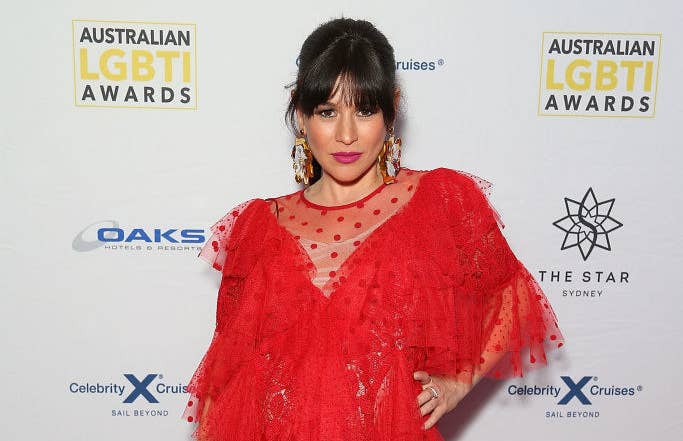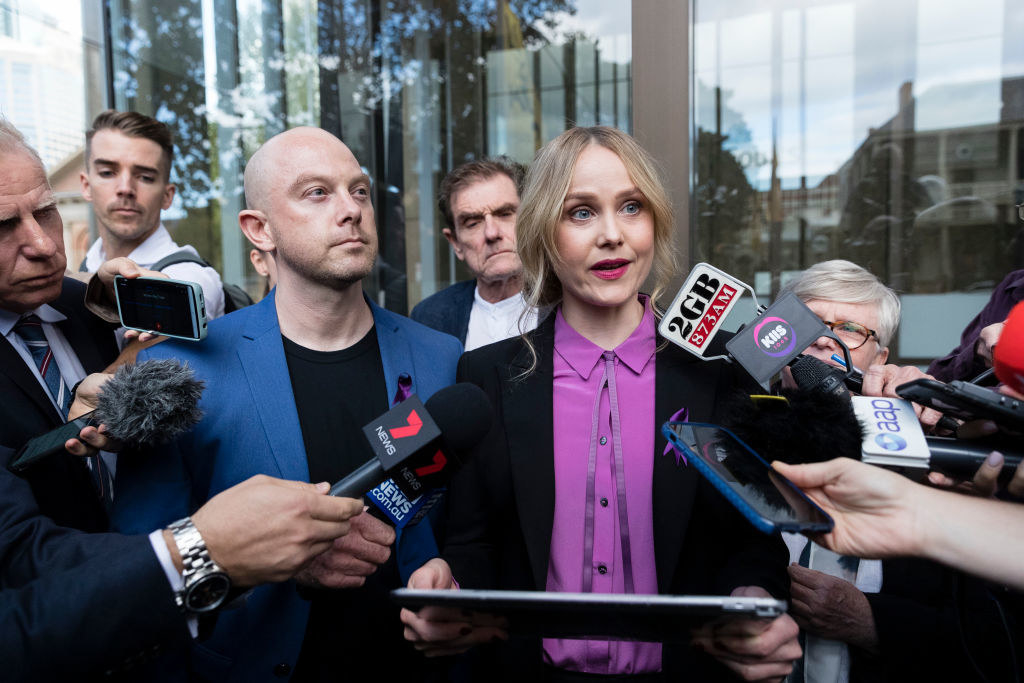
Australian actor Yael Stone is Witness X, the woman who stepped forward to give evidence at the eleventh hour in Geoffrey Rush’s defamation case but was barred from testifying.
The Orange Is the New Black star’s name can now be reported after a suppression order made by Federal Court justice Michael Wigney was lifted on Thursday.
Her identity has been one of the most poorly kept secrets in Australian arts and media circles, particularly since she gave interviews to the New York Times and ABC's 7.30 program detailing her allegations against Rush following the trial.
Last month, Rush spectacularly won his defamation case against Nationwide News, the publisher of Sydney newspaper the Daily Telegraph, over articles alleging an unnamed female cast member had complained of his inappropriate behaviour during the 2015-16 Sydney Theatre Company (STC) run of King Lear.
Wigney ruled the newspaper had painted Rush as a pervert and a sexual predator and threw out its entire truth defence. He found that star witness Eryn Jean Norvill, whose complaint was aired by the Telegraph against her wishes, was not credible.
The Telegraph has filed an appeal.

The suppression order on Stone's name was lifted on Thursday with consent from all parties, following an application by Fairfax Media, now owned by Nine.
Last year, on the seventh day of the three-week trial, Nationwide News applied to change its defence to add evidence from Stone.
Wigney rejected the application, ruling it would have caused "egregious prejudice" to Rush and effectively delayed the conclusion of the trial by six months.
The suppression order prevented reporting of Stone’s name and her allegations against Rush only in connection to the defamation case, which is why her interviews with other media outlets were able to be published.
An order remains in place suppressing publication of the details of her allegations that were filed to the court.
Stone told the ABC in December last year that Rush had danced naked in front of her in a shared dressing room and used a mirror to look over the top of the cubicle as she showered, as well as sending sexual text messages.
Rush said in a statement that Stone's allegations were incorrect and in some cases had been taken out of context.

Despite the decisive judgement in April, the drama in the high profile case continued in a case management hearing on Friday morning before Wigney.
Rush's barrister Sue Chrysanthou accused the Telegraph of launching an "attack" on the actor's vindication, and on the court itself, as she argued in favour of an injunction to ban the Telegraph from repeating Norvill's King Lear allegations.
“They ran a truth case. They lost,” she said, adding that the Telegraph had taken down the articles Rush sued over, but had then repeated the allegations in subsequent articles.
“These are not fair reports of what happened in court,” she said, reading aloud from one: “Sydney loves EJ!”
Meanwhile, the Telegraph has launched an application for Wigney to stand himself down from hearing the injunction.
Nationwide News barrister Lyndelle Barnett told the court the recusal application was on the basis of apprehended bias, meaning that a fair-minded layperson might reasonably think the judge was biased.
This is the same grounds on which the Telegraph is appealing the overall judgement.
The Telegraph agreed to an interim injunction before the matter returns to court on May 20.
The court also heard that the two parties are hopeful of reaching an agreement on how much he should receive in damages for special economic loss.
At trial, Rush’s legal team submitted that the figure could be as high as $25 million in figures that were revealed due to a redaction error.
